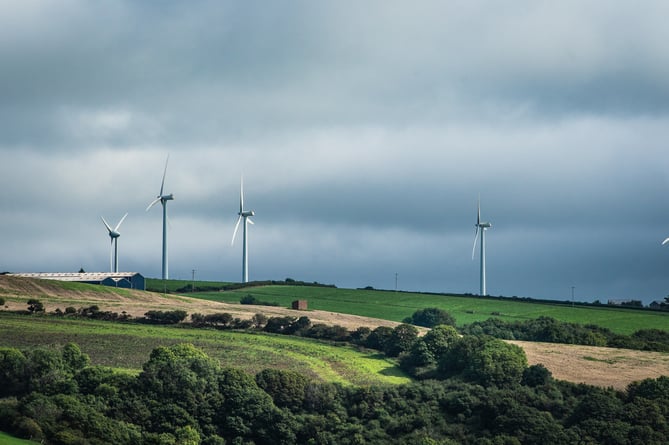The building of renewable energy projects should not be at the expense of Wales’ rural communities, a Conservative MS has warned.
James Evans, who represents Brecon and Radnorshire, said large-scale wind farms and pylons threaten Wales’ breathtaking landscapes and tourism industry.
Despite his concerns, Mr Evans said he recognised that green energy is crucial to a sustainable future.
He said: “We can’t ignore the potential harm that these projects can inflict on the very communities they’re supposed to help.
“Imagine this: you wake up to the consistent sound of a hum of a turbine blade. Some residents have described this sound as similar to a plane consistently being overhead.
“This isn't science fiction – it is the reality for many living near wind farms.”
‘Voicelessness’
Warning that renewable projects can drastically change the countryside’s character, Mr Evans raised concerns about “shadow flicker” from the colossal structures.
Leading a short debate in the Senedd on 17 April, the Tory highlighted a study that found a statistically significant negative impact on property values near onshore wind farms.
Mr Evans said the most concerning aspect is a feeling of voicelessness among residents “who are battling against big corporations like David and Goliath”.
He told the chamber:” Many communities fear that they have little say in the decision-making process surrounding windfarm development.
“Consultations, if they happen at all, can often feel like a mere formality. “
Planning policies
Mr Evans said Planning Policy Wales clearly states cables should be undergrounded but developers often say it is not financially viable.
He told MSs: “All these developments should be designed, in the first instance, to comply with Planning Policy Wales.
“They cannot use costs as an excuse to circumvent the planning policies here in Wales, and I think Welsh ministers need to be a lot stronger in following their own guidance.”
Mr Evans questioned the tangible benefits from developments for rural Wales, saying these are dwarfed by big returns for shareholders.
He argued responsible development is key, calling for noise emission limits, turbines to be placed further from homes and more robust community consultation.
‘Green rush’
Cefin Campbell, for Plaid Cymru, said his party has no objection to onshore renewables but Wales must question the size and scale of wind farm proposals.
He raised concerns about a “green rush” with developers proposing to build pylons criss-crossing Powys, Ceredigion and Carmarthenshire.
Russell George, the Conservative MS for Montgomeryshire, similarly argued against the “over-proliferation” of wind farms.
His Tory colleague Samuel Kurtz raised the potential for floating offshore wind in the Cetlic sea, saying it is vital to minimise the disruption caused by associated onshore infrastructure.
Janet Finch-Saunders, a fellow Conservative, who represents Aberconwy, also urged ministers to explore undergrounding as an alternative to overhead lines.
‘Fair transition’
Jeremy Miles told the chamber the Welsh Government wants to see a fair transition, which strengthens the economy, creates jobs and supports social change.
Wales’ new economy secretary emphasised that energy is crucial to the economy, with a target of 100% of electricity coming from renewable sources by 2035.
Mr Miles reassured MSs that the planning process is rigorous, robust, transparent and, critically, affords opportunities for community engagement.
He said: “Communities will be heard and decisions will be made balancing the climate emergency and the needs of communities for the long term.”
Stressing that rural Wales is at the forefront of ministers’ thinking, Mr Miles announced plans to convene an independent advisory group on the future of Wales’ electricity grid.




